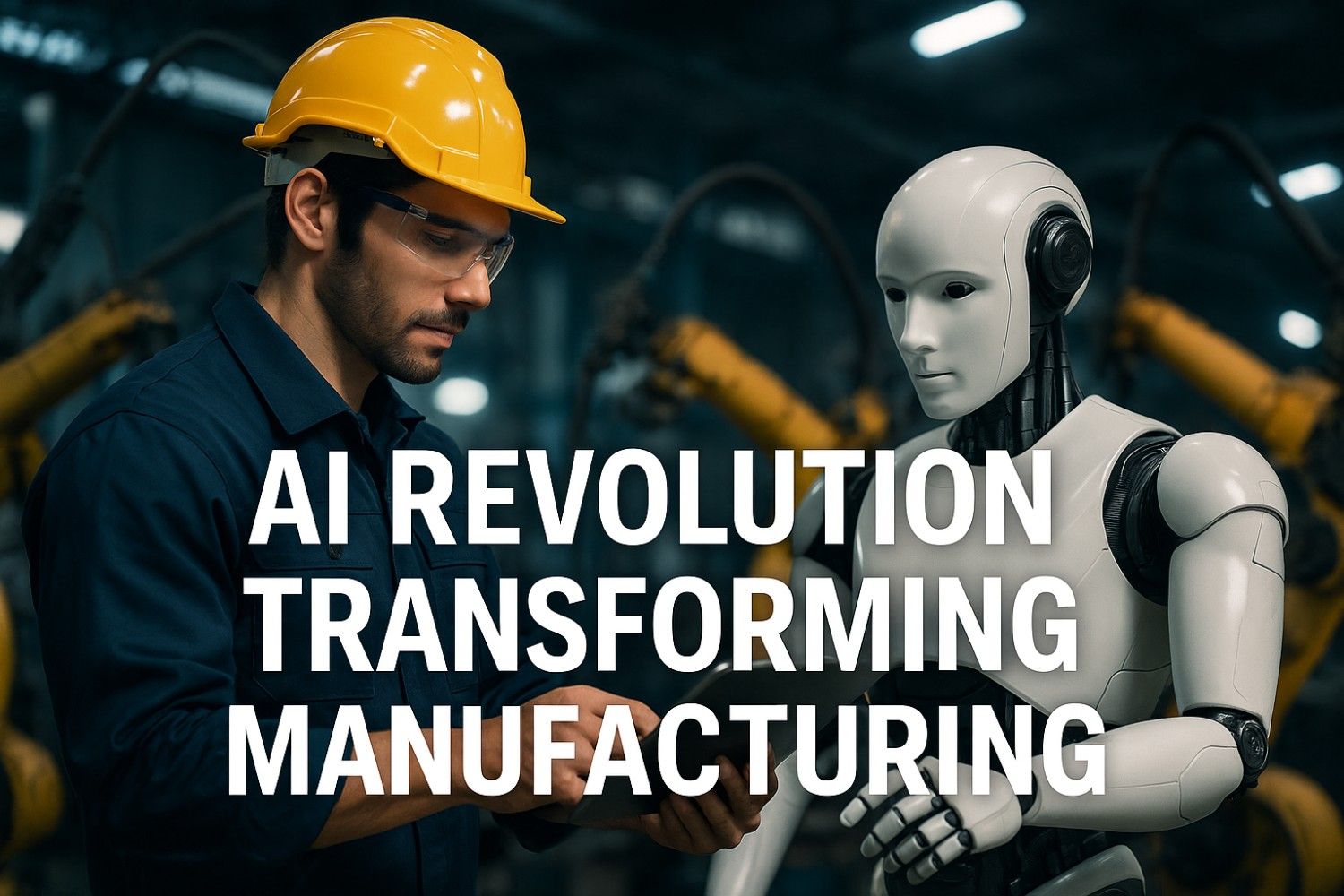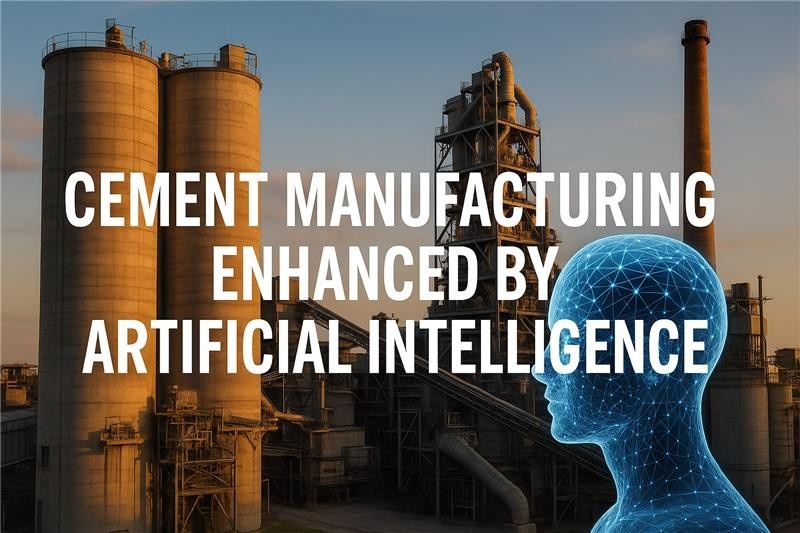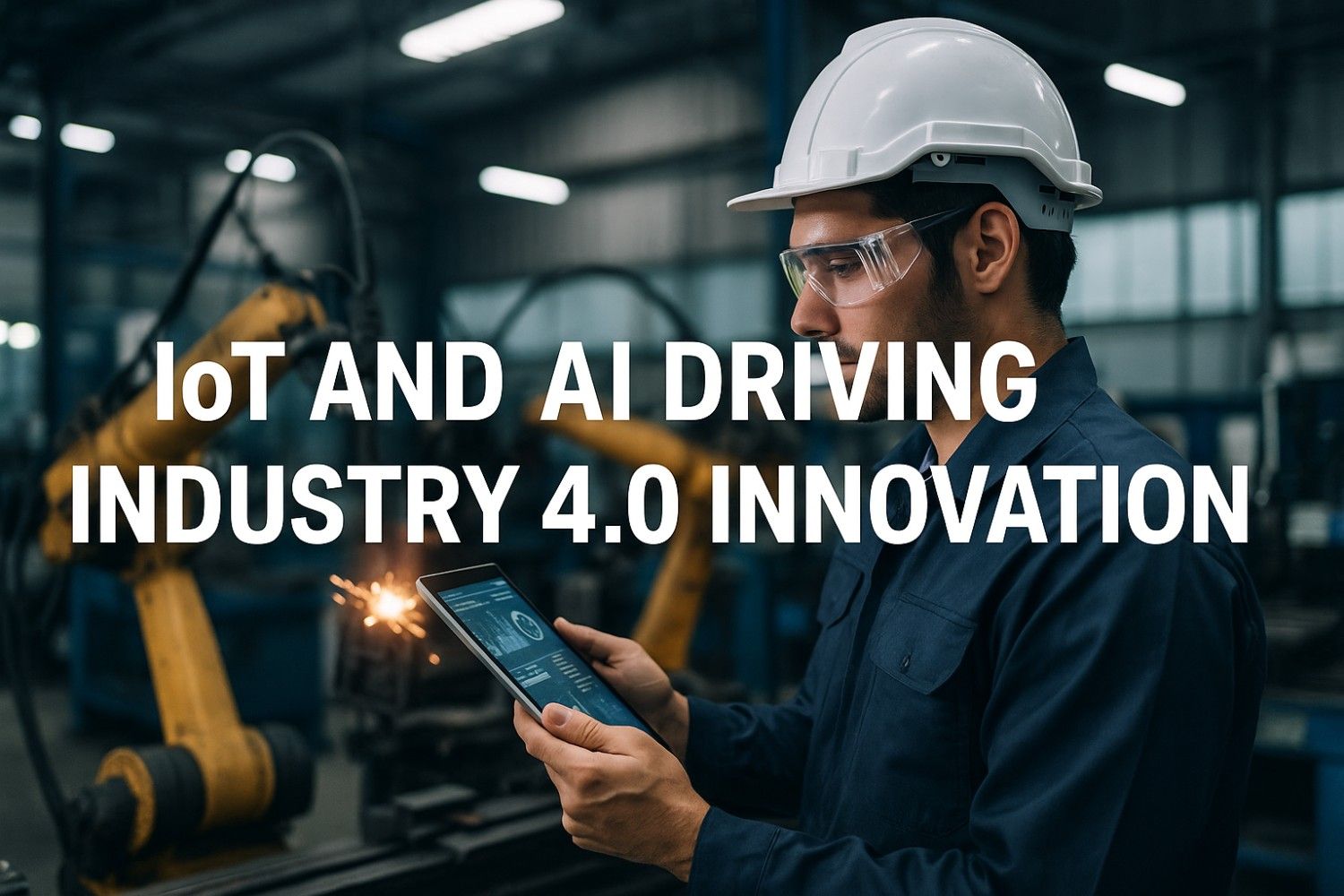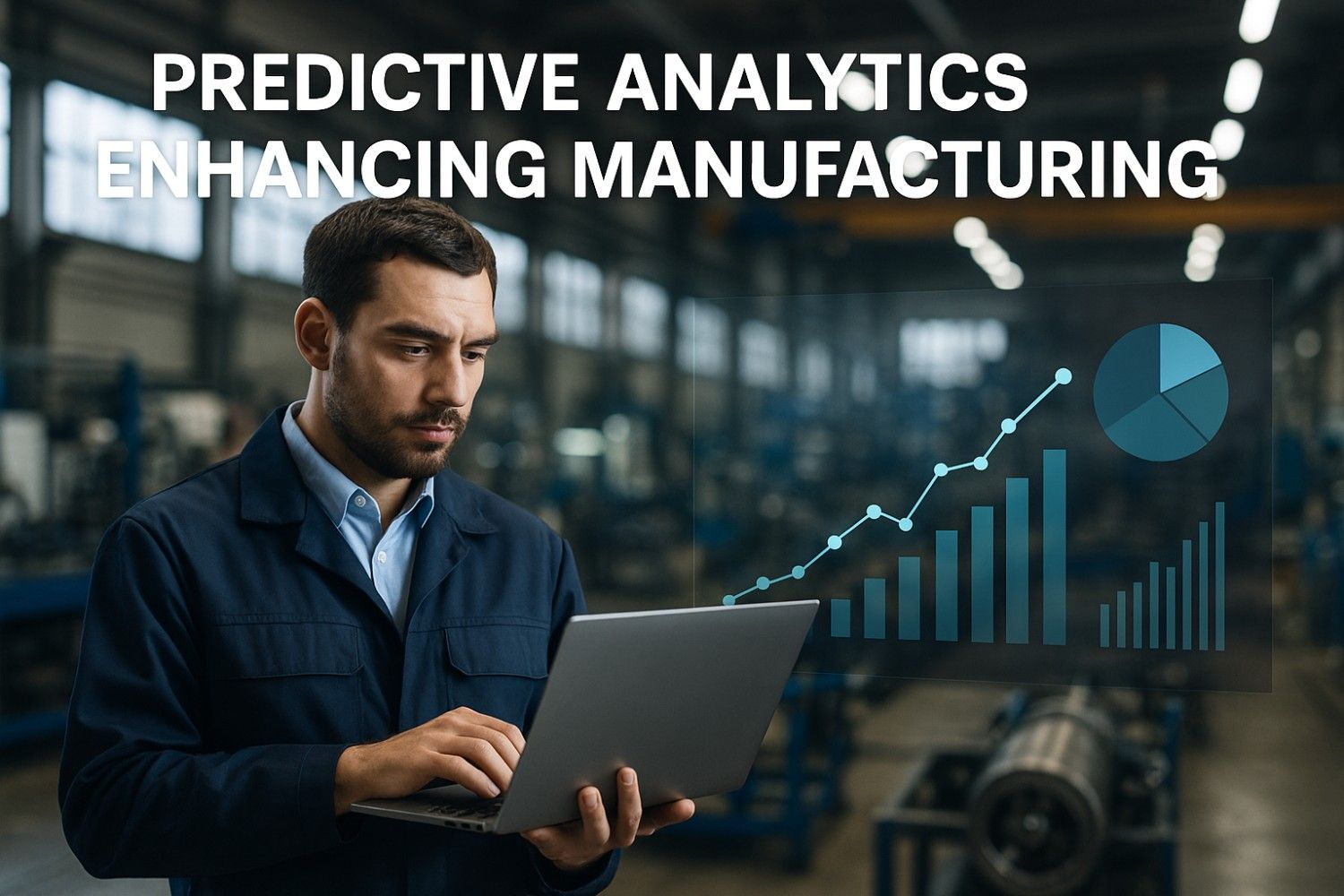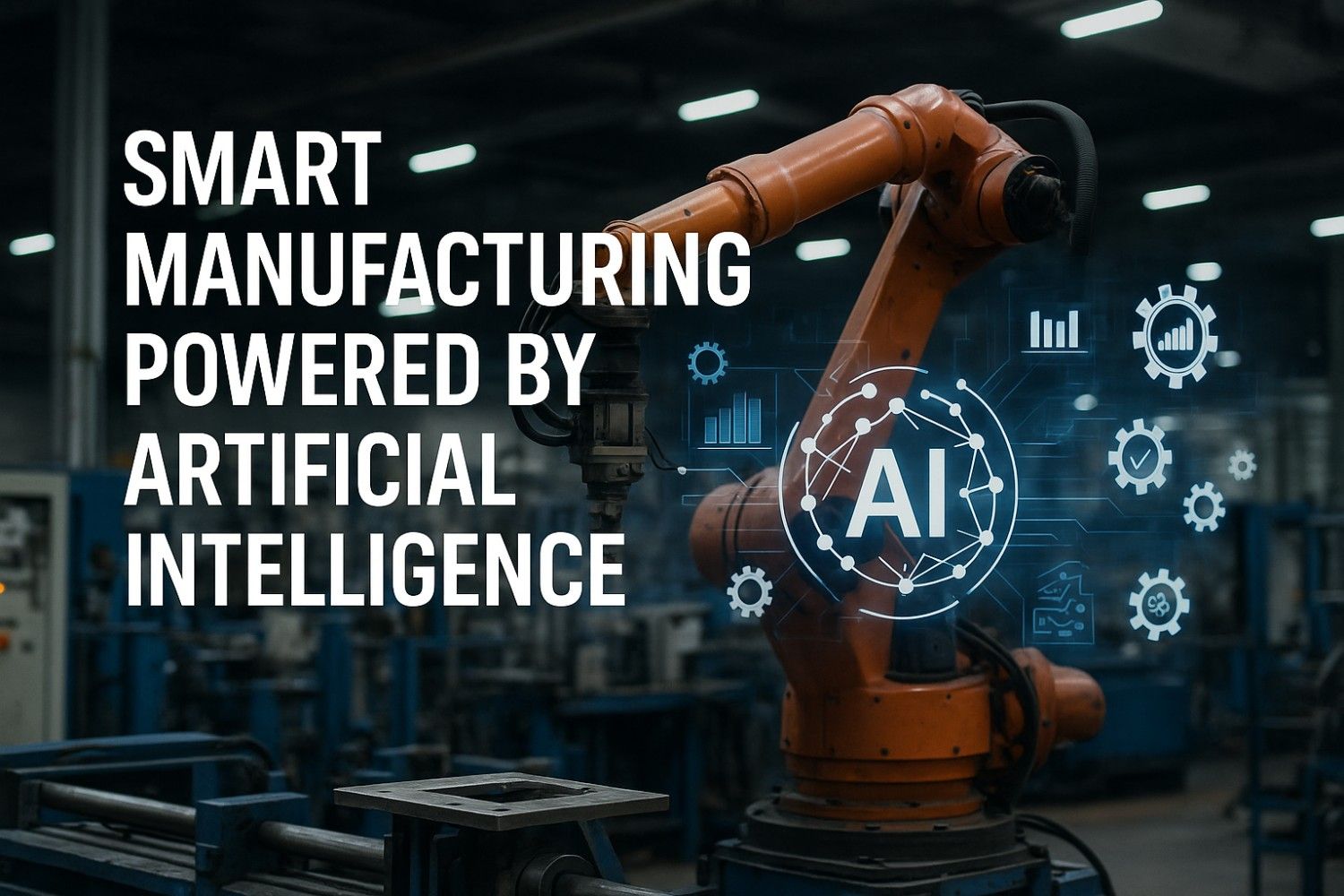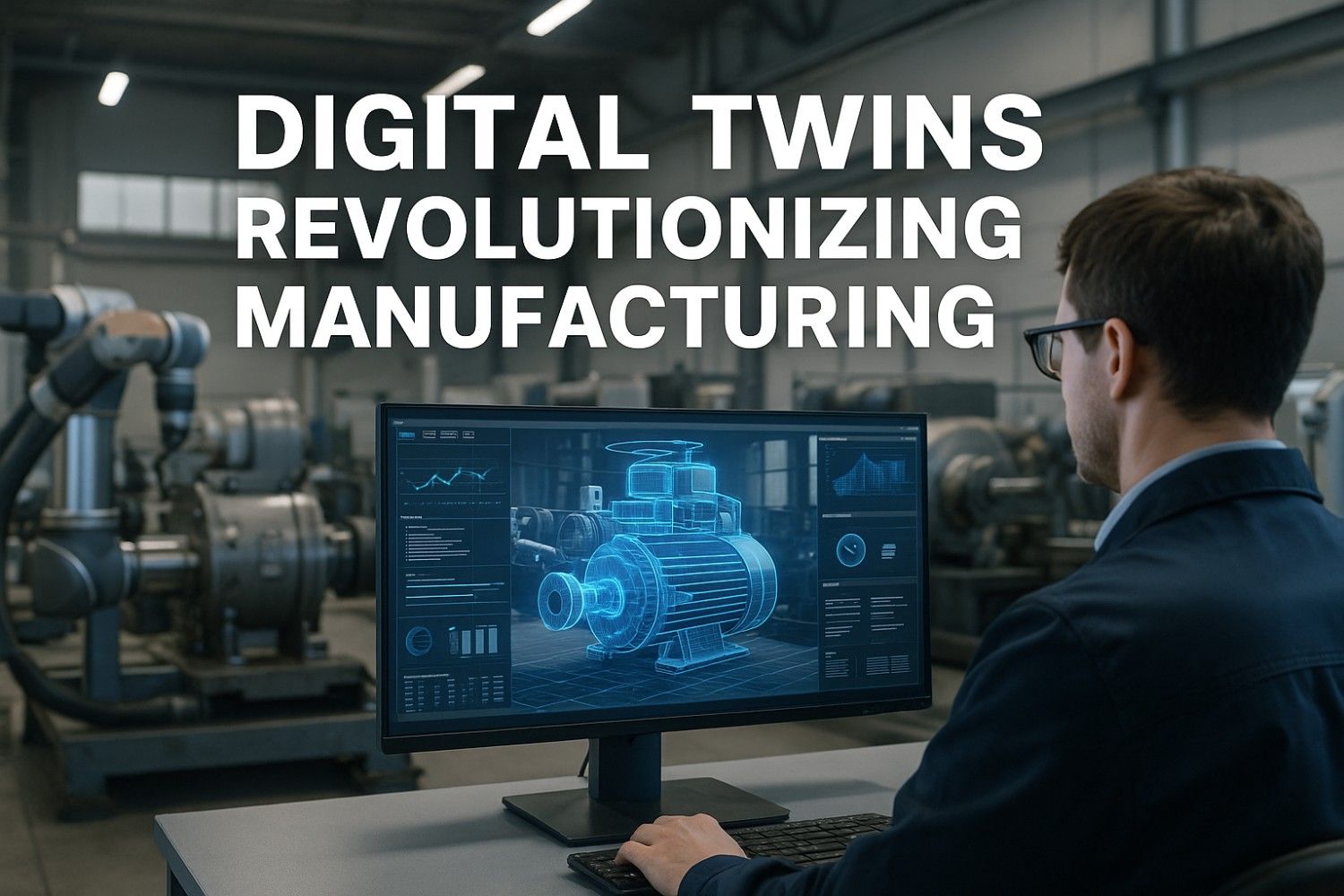As we navigate through the Industry 4.0 era, artificial intelligence has emerged as the catalyst for unprecedented change in manufacturing operations. From predictive maintenance that prevents costly downtime to intelligent quality control systems that ensure zero-defect production, AI-powered manufacturing solutions are revolutionizing every aspect of industrial production. Companies leveraging platforms like iFactory MES are already witnessing dramatic improvements in operational efficiency, cost reduction, and competitive positioning.
Global economic impact of AI by 2030
Of manufacturers investing in AI technologies
Reduction in unplanned downtime with AI
Increase in production efficiency through AI optimization
What is the AI Revolution in Manufacturing?
The AI revolution in manufacturing represents a fundamental shift from traditional automation to intelligent, self-learning systems that can adapt, optimize, and make autonomous decisions in real-time. Unlike conventional manufacturing systems that follow predetermined rules and require constant human oversight, AI-powered manufacturing leverages machine learning algorithms, neural networks, and advanced analytics to create truly intelligent production environments.
This transformation extends far beyond simple task automation. Modern smart manufacturing powered by AI encompasses predictive maintenance systems that forecast equipment failures before they occur, computer vision systems that perform quality inspections with superhuman accuracy, and intelligent scheduling algorithms that optimize production flows across entire facilities. These capabilities enable manufacturers to achieve levels of efficiency, quality, and flexibility that were previously impossible with traditional manufacturing approaches.
Machine Learning Algorithms
Advanced algorithms that learn from production data to continuously improve manufacturing processes and predict optimal operating conditions.
Computer Vision Systems
AI-powered visual inspection systems that detect defects with 99.9% accuracy, far exceeding human capabilities.
Predictive Analytics
Sophisticated forecasting models that predict equipment failures, quality issues, and production bottlenecks before they impact operations.
Natural Language Processing
AI systems that understand and process documentation, maintenance logs, and operational reports to extract actionable insights.
Core Components of AI-Driven Manufacturing
At the heart of the AI revolution are several key technologies working in concert to transform manufacturing operations. Deep learning neural networks process vast amounts of sensor data to identify patterns and anomalies that indicate potential issues or optimization opportunities. These systems continuously learn from new data, becoming more accurate and effective over time without requiring explicit programming updates.
Edge computing capabilities enable real-time AI processing directly on the factory floor, reducing latency and ensuring that critical decisions can be made instantly without dependency on cloud connectivity. This distributed intelligence architecture, combined with IoT sensors and advanced manufacturing execution systems like iFactory MES, creates a comprehensive ecosystem that supports autonomous manufacturing operations.
Integration with Industry 4.0 Technologies
The AI revolution doesn't exist in isolation—it's intrinsically linked with other Industry 4.0 technologies including the Industrial Internet of Things (IIoT), cloud computing, big data analytics, and cyber-physical systems. This convergence creates powerful synergies where AI algorithms can leverage real-time data from thousands of connected sensors to make intelligent decisions that optimize entire production ecosystems.
Digital twin technology, powered by AI, creates virtual replicas of physical manufacturing assets and processes. These digital twins enable manufacturers to simulate different scenarios, test optimization strategies, and predict the impact of changes before implementing them in the physical environment, dramatically reducing risk and accelerating innovation cycles.
Experience AI-Powered Manufacturing with iFactory MES
Join industry leaders who are leveraging iFactory MES to implement cutting-edge AI solutions that deliver measurable improvements in efficiency, quality, and profitability.
Book a Demo Contact SupportWhy the AI Revolution Matters: Addressing Critical Industry Challenges
The manufacturing industry faces unprecedented challenges in today's rapidly evolving global marketplace. Increasing pressure to reduce costs while improving quality, growing complexity in supply chains, skilled workforce shortages, and rising customer expectations for customization and rapid delivery are pushing traditional manufacturing models to their breaking point. The AI revolution provides practical solutions to these critical challenges.
Legacy manufacturing systems struggle to adapt to the dynamic conditions of modern production environments. Equipment breakdowns cause costly unplanned downtime, quality issues lead to expensive recalls and customer dissatisfaction, and inefficient production scheduling results in wasted resources and missed delivery commitments. These challenges compound in complexity as manufacturers expand their product portfolios and serve increasingly global markets.
The Labor Challenge: Bridging the Skills Gap
One of the most pressing challenges facing manufacturers today is the critical shortage of skilled workers. As experienced operators retire, companies struggle to find qualified replacements who possess both the technical knowledge and practical experience necessary to maintain high-quality production. AI-powered manufacturing systems help bridge this gap by capturing and codifying the expertise of veteran workers into intelligent systems that guide less experienced operators.
AI systems can provide real-time guidance to operators, automatically detect and correct errors before they impact product quality, and continuously monitor operations to identify training opportunities. This technology empowers manufacturers to maintain operational excellence even as their workforce evolves, while simultaneously creating more engaging and less physically demanding jobs for human workers.
Quality and Consistency Imperatives
In today's competitive marketplace, quality is no longer a differentiator—it's a prerequisite for survival. Customers expect perfect products delivered consistently, and a single quality failure can result in massive recalls, brand damage, and regulatory penalties. Traditional quality control approaches that rely on periodic sampling and manual inspection simply cannot provide the level of assurance required in modern manufacturing.
AI-powered quality systems enable 100% inspection of products at production speeds, using computer vision and machine learning to detect even subtle defects that would escape human inspection. These systems learn from every inspection, continuously improving their ability to identify quality issues while adapting to variations in materials, processes, and environmental conditions. Platforms like iFactory MES integrate these AI quality capabilities directly into manufacturing workflows, ensuring that quality is built into every step of the production process.
Supply Chain Complexity and Disruption
Global supply chains have become increasingly complex and vulnerable to disruption, as recent events have dramatically demonstrated. Manufacturers need intelligent systems that can anticipate supply chain issues, automatically adjust production plans to accommodate delays or shortages, and optimize inventory levels to balance cost efficiency with supply security. AI-driven supply chain optimization provides these capabilities through predictive analytics and autonomous decision-making.
Machine learning algorithms analyze vast amounts of data from suppliers, logistics providers, market conditions, and internal operations to forecast potential disruptions and recommend proactive mitigation strategies. These systems can automatically reoptimize production schedules when disruptions occur, minimizing the impact on customer commitments while maximizing resource utilization.
Transformative Benefits: How AI is Revolutionizing Manufacturing Operations
The implementation of AI-powered manufacturing solutions delivers measurable benefits across every aspect of industrial operations. These improvements aren't incremental—they represent step-change improvements that fundamentally alter the competitive dynamics of manufacturing industries. Organizations that successfully implement AI technologies achieve significant advantages in operational efficiency, product quality, cost structure, and market responsiveness.
The real-world impact of AI in manufacturing extends far beyond theoretical possibilities. Leading manufacturers are already achieving dramatic results: 50% reductions in unplanned downtime through predictive maintenance, 30-40% improvements in overall equipment effectiveness, 90% reduction in quality defects, and 25% reductions in operational costs. These aren't aspirational goals—they're documented results achieved by manufacturers who have embraced the AI revolution.
Operational Efficiency and Productivity Gains
AI-driven optimization enables manufacturers to operate at peak efficiency continuously. Intelligent scheduling algorithms analyze hundreds of variables simultaneously—including machine availability, operator skills, material availability, customer priorities, and energy costs—to generate optimal production schedules that maximize throughput while minimizing waste and costs.
Real-time optimization capabilities allow manufacturing systems to adapt instantly to changing conditions. When equipment develops issues, quality problems emerge, or material shortages occur, AI systems automatically adjust operations to maintain optimal performance. This adaptive capability eliminates the inefficiencies inherent in static production schedules and manual intervention approaches. iFactory MES demonstrates this capability through its intelligent production planning features that continuously optimize manufacturing operations based on real-time conditions.
Predictive maintenance powered by machine learning algorithms prevents unplanned downtime by identifying equipment issues before they cause failures. By analyzing vibration patterns, temperature variations, power consumption, and other sensor data, AI systems can predict when components will fail and schedule maintenance during planned downtime windows. This proactive approach eliminates the costly disruptions of unexpected breakdowns while optimizing maintenance costs by avoiding unnecessary preventive maintenance activities.
Cost Savings and Resource Optimization
The financial impact of AI implementation in manufacturing is substantial and multifaceted. Beyond the obvious savings from reduced downtime and improved efficiency, AI technologies deliver cost reductions through optimized energy consumption, reduced material waste, lower inventory carrying costs, and decreased quality-related expenses including rework, scrap, and warranty claims.
Energy optimization represents a significant opportunity for cost reduction, particularly in energy-intensive manufacturing operations. AI systems analyze production schedules, equipment characteristics, and utility rate structures to minimize energy costs while maintaining production targets. These systems can shift energy-intensive operations to off-peak periods, optimize equipment operating parameters for energy efficiency, and predict peak demand periods to avoid expensive demand charges.
Material waste reduction through AI-powered process optimization delivers both cost savings and sustainability benefits. By precisely controlling process parameters and predicting optimal operating conditions, AI systems minimize raw material consumption while maintaining product quality. Computer vision systems ensure that materials are utilized efficiently, detecting and preventing waste before it occurs rather than discovering it during final inspection.
Innovation and Competitive Advantage
Perhaps the most significant benefit of the AI revolution in manufacturing is its impact on innovation capabilities. AI-powered systems enable rapid experimentation and optimization of new products and processes, dramatically accelerating the innovation cycle. Digital twin technology allows manufacturers to test new product designs and process modifications virtually before committing to physical implementation, reducing development costs and time-to-market.
The vast amounts of data generated by AI-enabled manufacturing systems provide unprecedented insights into product performance, customer preferences, and market trends. These insights inform strategic decisions about product development, market positioning, and business model innovation. Manufacturers who effectively leverage these capabilities can identify and capitalize on market opportunities faster than competitors relying on traditional approaches.
Mass customization capabilities enabled by AI allow manufacturers to offer highly personalized products at near mass-production costs. Intelligent manufacturing systems can seamlessly switch between product variants, automatically adjusting equipment settings and process parameters for each unique product configuration. This flexibility enables manufacturers to serve niche markets and capture premium pricing while maintaining the cost efficiency of high-volume production.
Key Benefits of AI in Manufacturing:
- 50% Reduction in Downtime: Predictive maintenance prevents unexpected equipment failures
- 35% Efficiency Improvement: Real-time optimization maximizes production throughput
- 90% Defect Reduction: AI-powered quality control ensures consistent excellence
- 25% Cost Savings: Optimized resource utilization reduces operational expenses
- 40% Faster Innovation: Digital twins accelerate product development cycles
- 70% Better Forecasting: Advanced analytics improve demand prediction accuracy
How AI Integration Works: Implementing Intelligent Manufacturing Systems
Successfully implementing AI-powered manufacturing requires a strategic approach that balances technological capabilities with organizational readiness. The most successful implementations follow a phased methodology that begins with foundational data infrastructure and progressively adds more sophisticated AI capabilities as the organization develops the necessary technical expertise and cultural readiness.
The journey toward AI-enabled manufacturing starts with establishing robust data collection and management capabilities. Manufacturing operations generate enormous volumes of data from sensors, equipment controllers, quality systems, and business applications. This data must be collected, stored, and organized in ways that enable effective AI algorithm development and deployment. Modern manufacturing execution systems like iFactory MES provide the data infrastructure foundation necessary to support advanced AI applications.
Establish data infrastructure, connect manufacturing assets, implement IoT sensors, and deploy manufacturing execution system. Focus on data quality, connectivity, and basic analytics capabilities.
Deploy targeted AI applications in specific areas such as predictive maintenance, quality control, or production scheduling. Learn from pilot implementations and build organizational capabilities.
Expand successful AI applications across the organization. Integrate AI capabilities into standard operating procedures. Develop internal expertise for AI system management and optimization.
Implement autonomous manufacturing capabilities with self-optimizing systems. Deploy advanced AI agents for complex decision-making. Achieve fully integrated intelligent manufacturing operations.
Data Infrastructure and Integration Requirements
The effectiveness of AI systems in manufacturing depends fundamentally on the quality and accessibility of data. AI algorithms require large volumes of high-quality training data to learn patterns and develop accurate predictive models. This data must encompass all relevant aspects of manufacturing operations including equipment performance, process parameters, environmental conditions, material properties, quality measurements, and production outcomes.
Integration with existing manufacturing systems is crucial for AI success. AI applications must connect seamlessly with equipment controllers, programmable logic controllers (PLCs), supervisory control and data acquisition (SCADA) systems, enterprise resource planning (ERP) systems, and quality management systems. This integration enables AI algorithms to access real-time data and implement autonomous decisions across the entire manufacturing ecosystem.
Cloud and edge computing infrastructure provides the computational power necessary for AI operations. Training sophisticated machine learning models requires significant computing resources, while real-time AI inference at the edge enables immediate response to manufacturing events. The optimal architecture typically combines cloud resources for model development and training with edge computing for real-time operational decisions.
AI Model Development and Deployment
Developing effective AI models for manufacturing applications requires specialized expertise in both artificial intelligence and manufacturing operations. Data scientists must work closely with manufacturing engineers to understand process physics, identify relevant variables, and develop models that capture the complex relationships within production systems. This collaboration ensures that AI models are not just mathematically sophisticated but also practically useful for manufacturing operations.
The model development process begins with data exploration and feature engineering, where relevant variables are identified and transformed into formats suitable for machine learning algorithms. Various AI techniques—including deep learning neural networks, ensemble methods, reinforcement learning, and genetic algorithms—may be applied depending on the specific application requirements and available data characteristics.
Model validation and testing ensure that AI systems perform reliably under real-world manufacturing conditions. Models must be tested against independent data sets, validated in simulation environments, and carefully monitored during initial deployment. Continuous monitoring and retraining capabilities ensure that AI models remain accurate as manufacturing conditions evolve over time.
Transform Your Manufacturing with AI-Powered iFactory MES
Discover how iFactory MES can help you implement cutting-edge AI solutions that deliver measurable improvements in efficiency, quality, and profitability.
Book a Demo Contact SupportReal-World Success: Case Studies in AI-Powered Manufacturing
The transformative impact of AI in manufacturing is best understood through real-world examples of companies that have successfully implemented these technologies. Across diverse industries—from automotive and aerospace to pharmaceuticals and consumer goods—manufacturers are achieving remarkable results through AI-powered operations.
These success stories demonstrate that AI implementation delivers concrete, measurable benefits rather than theoretical possibilities. Companies implementing AI-powered manufacturing execution systems are achieving significant improvements in key performance indicators including overall equipment effectiveness (OEE), first-pass yield, on-time delivery, and operational costs. These results validate the transformative potential of AI technologies in manufacturing environments.
Automotive Manufacturing: Predictive Quality and Maintenance
A leading automotive manufacturer implemented AI-powered predictive maintenance and quality control systems across their global production network. Using machine learning algorithms to analyze vibration data, temperature patterns, and power consumption from critical manufacturing equipment, the system predicts equipment failures up to two weeks in advance with 95% accuracy.
The AI quality control system uses computer vision to inspect painted body panels, detecting surface defects smaller than 0.1mm that would be invisible to human inspectors. The system processes images from multiple angles at line speed, automatically classifying defects by type and severity. Implementation of these AI systems resulted in a 60% reduction in unplanned downtime, 45% improvement in quality defect detection, and annual cost savings exceeding $15 million across the manufacturing network.
Electronics Assembly: Intelligent Production Optimization
A global electronics manufacturer deployed AI-powered production optimization leveraging iFactory MES to manage complex assembly operations producing hundreds of product variants. The AI system continuously analyzes production data to optimize line balancing, minimize changeover times, and predict equipment performance issues before they impact production.
Machine learning algorithms analyze historical production data to predict optimal equipment settings for each product variant, automatically adjusting parameters to maximize throughput while maintaining quality standards. The system identifies and prevents potential bottlenecks by predicting resource constraints and automatically rebalancing production schedules. These capabilities enabled the manufacturer to increase production capacity by 30% without additional capital investment while reducing quality defects by 70%.
Food and Beverage: AI-Driven Quality Consistency
A major food and beverage producer implemented AI-powered process control to maintain consistent product quality across varying raw material characteristics and environmental conditions. The system uses machine learning to predict optimal processing parameters based on incoming raw material properties, ambient conditions, and desired product specifications.
Real-time quality prediction models analyze sensor data during processing to forecast final product characteristics, enabling proactive adjustments before quality issues occur. The AI system reduced quality variation by 85%, decreased raw material waste by 20%, and improved overall equipment effectiveness by 35%. Additionally, the predictive capabilities enabled the company to expand the range of acceptable raw material specifications, reducing procurement costs while maintaining consistent product quality.
Overcoming Implementation Challenges: Strategies for Successful AI Adoption
While the benefits of AI-powered manufacturing are substantial, organizations face significant challenges in successful implementation. Understanding these challenges and developing appropriate strategies to address them is crucial for achieving desired outcomes. The most common obstacles include high initial investment costs, organizational resistance to change, skills gaps, data quality issues, and integration complexity with legacy systems.
Successful AI adoption requires more than just technology deployment—it demands a comprehensive transformation encompassing organizational culture, workforce capabilities, business processes, and technology infrastructure. Companies that approach AI implementation strategically, with clear objectives, phased rollout plans, and strong leadership commitment, are far more likely to achieve successful outcomes than those pursuing AI adoption as a purely technical initiative.
Managing Investment and ROI Expectations
The initial investment required for AI implementation can be substantial, including costs for data infrastructure, AI software platforms, computing resources, integration services, and organizational change management. These upfront costs often create hesitation, particularly among smaller manufacturers or those operating in competitive markets with tight margins.
However, the return on investment for well-executed AI implementations typically exceeds expectations. Most manufacturers implementing AI-powered manufacturing execution systems like iFactory MES achieve positive ROI within 18-24 months, with many seeing payback in under 12 months for targeted applications like predictive maintenance. The key to managing investment concerns is starting with focused pilot programs that deliver quick wins and provide empirical evidence of AI's value before scaling to enterprise-wide implementations.
Modern cloud-based AI platforms and manufacturing execution systems offer flexible deployment models that reduce upfront capital requirements. Software-as-a-service (SaaS) approaches enable manufacturers to access sophisticated AI capabilities with manageable monthly subscription costs rather than large capital expenditures. This approach reduces financial risk while enabling rapid deployment and continuous improvement as AI technologies evolve.
Building Organizational Capabilities and Managing Change
The human dimension of AI implementation often presents greater challenges than the technical aspects. Factory workers may fear that AI will eliminate their jobs, while engineers and managers may resist AI recommendations that conflict with their experience and intuition. Successful AI adoption requires comprehensive change management programs that address these concerns while building the capabilities necessary to leverage AI technologies effectively.
Training and workforce development programs should emphasize how AI augments human capabilities rather than replacing workers. When properly implemented, AI systems eliminate repetitive, tedious tasks while enabling workers to focus on higher-value activities requiring judgment, creativity, and problem-solving. This approach creates more engaging jobs while improving operational performance.
Building internal AI expertise is essential for long-term success. While external consultants and AI vendors provide valuable support during initial implementation, organizations must develop internal capabilities to operate, maintain, and continuously improve AI systems. This requires recruiting or developing talent with expertise in data science, machine learning, and AI operations, alongside deep understanding of manufacturing processes and business objectives.
Data Quality and Integration Complexities
AI systems are only as good as the data they learn from. Poor data quality—including missing values, measurement errors, inconsistent formats, and incomplete records—undermines AI effectiveness and can lead to incorrect conclusions and suboptimal decisions. Many manufacturers discover data quality issues only when they begin AI implementation projects, requiring significant investment in data cleanup and process improvements before AI applications can be deployed successfully.
Integrating AI systems with existing manufacturing infrastructure presents technical challenges, particularly in facilities with legacy equipment and diverse technology platforms. Different equipment vendors use proprietary communication protocols, data formats, and control interfaces that complicate integration efforts. Modern manufacturing execution systems like iFactory MES address these challenges through comprehensive connectivity frameworks that support integration with diverse industrial equipment and information systems.
The Future of AI in Manufacturing: Emerging Trends and Technologies
The AI revolution in manufacturing is accelerating rather than plateauing. Emerging technologies and evolving AI capabilities promise even more dramatic transformations in the coming years. Understanding these trends enables manufacturers to make strategic decisions about technology investments and capability development that will position them for long-term competitive success.
The convergence of multiple advanced technologies—including 5G connectivity, edge computing, quantum computing, advanced robotics, and next-generation AI algorithms—will enable manufacturing capabilities that seem almost science-fiction today. Autonomous factories that optimize themselves continuously, predict and prevent problems before they occur, and adapt instantly to changing market demands will become reality rather than aspiration.
Autonomous Manufacturing and Self-Optimizing Systems
The evolution toward fully autonomous manufacturing represents the ultimate expression of the AI revolution. Future manufacturing systems will operate with minimal human intervention, continuously monitoring their own performance, predicting and preventing problems, and automatically optimizing operations based on changing conditions and business objectives.
These autonomous systems will leverage advanced reinforcement learning algorithms that learn optimal strategies through continuous experimentation within digital twin environments. Rather than requiring explicit programming for every scenario, autonomous manufacturing systems will discover and implement optimal approaches through AI-driven exploration and learning. This capability will enable manufacturing operations to adapt rapidly to new products, processes, and market conditions without requiring extensive reprogramming or human intervention.
Generative AI and Advanced Design Optimization
Generative AI technologies are beginning to transform product design and process optimization. These systems can automatically generate and evaluate thousands of design alternatives, identifying solutions that human engineers might never conceive. In manufacturing process optimization, generative AI can discover novel approaches to equipment configuration, parameter settings, and production sequencing that deliver superior performance compared to traditional optimization methods.
The integration of generative AI with manufacturing execution systems will enable continuous process innovation at unprecedented speed. Manufacturing systems will automatically identify improvement opportunities, generate potential solutions, simulate outcomes, and implement the most promising approaches—all without human intervention beyond setting strategic objectives and constraints.
Quantum Computing and Next-Generation Optimization
Quantum computing promises to revolutionize manufacturing optimization by solving complex problems that are intractable for classical computers. Production scheduling problems involving thousands of variables and constraints, supply chain optimization across global networks, and molecular-level process simulation will become computationally feasible as quantum computing matures.
While practical quantum computing for manufacturing applications remains several years away, forward-thinking manufacturers are beginning to explore quantum algorithms and prepare for this technological transformation. Early adopters who develop expertise in quantum-enabled optimization will gain significant competitive advantages as this technology becomes commercially viable.
Emerging AI Trends in Manufacturing (2025-2030):
- Fully Autonomous Factories: Self-optimizing production systems with minimal human intervention
- Generative AI Design: Automated product and process design optimization
- Quantum Computing: Ultra-fast optimization of complex manufacturing problems
- Advanced Robotics Integration: AI-powered collaborative robots with human-like adaptability
- Sustainable Manufacturing AI: Optimization focused on environmental sustainability and circular economy
- Human-AI Collaboration: Augmented intelligence systems that enhance human decision-making
- Federated Learning: Collaborative AI that learns across manufacturing networks while protecting proprietary data
Embracing the AI Revolution: Your Path to Manufacturing Excellence
The AI revolution in manufacturing represents the most significant transformation in industrial production since the introduction of automated assembly lines. Organizations that embrace these technologies today are establishing competitive advantages that will define industry leadership for decades to come. The question is not whether to implement AI in manufacturing, but how quickly you can deploy these capabilities to capture their transformative benefits.
The path forward requires strategic vision, committed leadership, and willingness to embrace change. Successful AI adoption demands investment in technology infrastructure, workforce development, and organizational transformation. However, the manufacturers who make these investments are achieving remarkable results—dramatic efficiency improvements, unprecedented quality levels, significant cost reductions, and enhanced competitive positioning in global markets.
Platforms like iFactory MES are making advanced AI capabilities accessible to manufacturers of all sizes, democratizing technologies that were previously available only to the largest corporations with massive R&D budgets. This democratization of AI is accelerating the pace of transformation across the manufacturing industry, creating opportunities for innovative companies to leapfrog established competitors through strategic technology adoption.
The AI revolution in manufacturing is happening now. The manufacturers who act decisively to implement these technologies will thrive in the intelligent manufacturing era, while those who hesitate risk being left behind in an increasingly competitive global marketplace. Your journey toward AI-powered manufacturing excellence begins today.
Ready to Lead Your Industry with AI-Powered Manufacturing?
Join the forward-thinking manufacturers who are already transforming their operations with iFactory MES and artificial intelligence. Start your journey toward intelligent manufacturing excellence today.
Book a Demo Contact SupportFrequently Asked Questions
What exactly is the AI revolution in manufacturing and how does it differ from traditional automation?
The AI revolution in manufacturing represents a fundamental shift from rule-based automation to intelligent, self-learning systems that can adapt, optimize, and make autonomous decisions. Unlike traditional automation that follows predetermined instructions, AI-powered manufacturing leverages machine learning algorithms, neural networks, and advanced analytics to continuously improve operations without explicit programming. These systems learn from data, predict future conditions, and automatically optimize processes for maximum efficiency, quality, and flexibility.
How much does it cost to implement AI in manufacturing operations and what is the typical ROI?
The cost of AI implementation varies based on scope and complexity, typically ranging from $100,000 for focused pilot programs to several million dollars for enterprise-wide deployments. However, most manufacturers implementing AI-powered manufacturing execution systems like iFactory MES achieve positive ROI within 18-24 months, with many seeing payback in under 12 months for targeted applications. Cloud-based SaaS solutions significantly reduce upfront capital requirements while providing access to sophisticated AI capabilities. The average manufacturer achieves 35% efficiency improvements and 25% cost reductions through AI implementation.
What are the biggest challenges in implementing AI in manufacturing and how can they be overcome?
The primary challenges include high initial investment costs, organizational resistance to change, skills gaps, data quality issues, and integration complexity with legacy systems. These challenges can be overcome through phased implementation approaches that start with focused pilot programs, comprehensive change management and training programs, investment in data infrastructure and quality improvement, and selection of manufacturing execution systems like iFactory MES that provide robust integration frameworks. Building internal AI expertise and securing strong leadership commitment are also crucial for success.
Will AI replace human workers in manufacturing, or will it create new opportunities?
AI augments rather than replaces human workers in manufacturing. While AI automates repetitive, tedious tasks and makes certain routine decisions autonomously, it creates opportunities for workers to focus on higher-value activities requiring judgment, creativity, and problem-solving. AI implementation typically leads to job evolution rather than elimination, with workers transitioning from manual task execution to system monitoring, exception handling, and continuous improvement activities. Studies show that manufacturers implementing AI see workforce redeployment to more engaging roles rather than reduction, while also addressing critical skilled worker shortages.
What specific AI technologies are most impactful for manufacturing operations?
The most impactful AI technologies for manufacturing include machine learning for predictive maintenance and process optimization, computer vision for quality inspection and defect detection, natural language processing for documentation analysis, reinforcement learning for autonomous decision-making, and deep learning neural networks for complex pattern recognition. When integrated with manufacturing execution systems like iFactory MES, these AI technologies deliver measurable improvements in efficiency, quality, and cost performance. Predictive maintenance alone typically reduces unplanned downtime by 50%, while AI-powered quality systems achieve 90% reduction in defects.
How long does it take to implement AI in manufacturing and see tangible results?
AI implementation typically follows a phased approach spanning 6-18 months for initial deployment, with tangible results visible within 3-6 months. Focused pilot programs like predictive maintenance or AI-powered quality control can be deployed in 2-3 months and deliver immediate benefits. Full enterprise-wide implementation with advanced autonomous capabilities typically takes 12-24 months but delivers substantial benefits throughout the implementation process. The key is starting with high-impact use cases that deliver quick wins while building the foundation for more comprehensive AI deployment over time.
